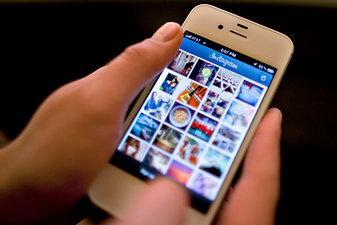In November, Instagram hid the number of “likes” on some U.S. profiles as part of a test to help reduce the societal pressure of obtaining a high like count.
Instagram’s CEO, Adam Mosseri, also tested hiding likes in countries like Australia, Canada, Japan and New Zealand before expanding the experiment to the U.S. Mosseri said he would rather prioritize the mental health of children and teens than marketing for organizations and corporations.
This experiment isn’t something new in the world of social media. Facebook, Instagram, Twitter and YouTube have all experimented with removing engagement metrics in order to create safe environments on their platforms.
Some Instagram users oppose the potentially permanent change. They believe hiding engagement metrics will make it harder to determine legitimate follower count. Some brands also argue that the policy will negatively affect their user engagement and their ability to determine if products are successful.
Bronx rapper Cardi B was also against the idea, saying that hiding the number of likes was ineffective and that comments on posts were much more toxic than the “like” button itself. Queens rapper Nicki Minaj said she would stop posting on Instagram if they removed likes and planned a move to Instagram Live. Minaj said self-made businesses and brands became financially successful from likes and that if the feature took permanent effect, it would hurt the pockets of social media influencers.
Some marketers are unfazed by the change because their companies are moving toward sponsored posts on Instagram instead of traditional posts as a way to determine their brand’s impact and reducing reliance on likes.
Actor and producer Tracee Ellis Ross, best known for her starring role in the television series “Black-ish,” is one of many public figures supporting the change. Ross launched Pattern Beauty, a curly hair care company which gets its main revenue from Instagram sales. Ross said she supports the removal of like counts because it creates a culture that isn’t helpful for well-being and negatively impacts creative energy.
T.V. personality turned business mogul Kim Kardashian, who has over 150 million followers on Instagram and regularly receives over 1 million likes on her posts, supports the idea of Instagram hiding likes. She said taking that aspect away from Instagram would be really beneficial for people and their mental health. She’s happy Instagram is taking actions to change this controversial feature.
Instagram is trying to make the platform less susceptible to bullying and superficiality by working with therapists and engineers to develop other tools to prevent and end bullying on the platform. Instagram is also aiming to get rid of bot accounts and reduce the number of fake followers or likes some users buy.
I was fortunate enough to be chosen as one of the accounts with hidden likes, and it completely transformed how I perceived social media influencers; the power of their pictures are lessened. An image just becomes an ordinary photo.
I, along with other Instagram users, have been guilty of caring about the number of likes I receive on a picture. It’s normalized in modern society, but it shouldn’t be. A double tap shouldn’t determine your self worth. The “like” button is not an accurate representation of what you actually like or what you enjoy.
Some Instagram “like” button lovers may think users are insecure if the feature makes them feel worthless or if they negatively compare themselves to users they follow. I think these people should do some self-reflection and think about how they’d perceive themselves and others if the “like” button didn’t exist at all.
Instagram should keep likes hidden if the company truly wants to normalize authenticity on this already overly-superficial platform.
Jasmine Edmonson is a 21-year-old mass communication junior from Denham Springs, Louisiana.





